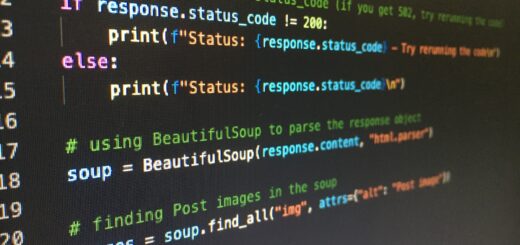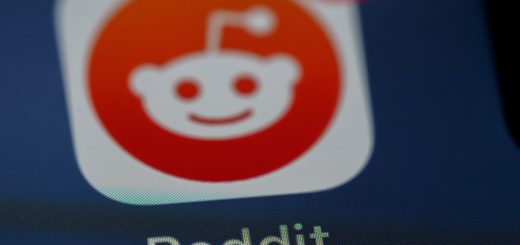Based on the central character in the Eminem song of the same name, a “stan” is an overzealous maniacal fan for any celebrity or athlete.
Urban dictionary
If you are at all connected with online chess over the last few months, then you have no doubt heard about the controversy surrounding an up-and-coming Grand Master by the name of Hans Niemann. The reigning world champion, Magnus Carlsen, resigned from a tournament rather than play against Hans, cryptically accusing him of cheating.
This article will not rehash the drama in the usual way. While I am not a chess expert, I did sleep in my own bed last night, and owing to my misspent youth playing various games online, the “did he or didn’t he” debate is extremely familiar. Not only do I believe Hans is an unrepentant and habitual chess cheater, I believe there is more than enough circumstantial evidence to bar this lying edgelord from professional chess for the rest of his life.
I want to go into what that circumstantial evidence actually is, and then go into some of the arguments his Stans use to discount it.
Table of Contents
The evidence so far
- Chess.com (hereafter: CC) statistically found evidence of Hans cheating in over 100 games in 2015, 2017, and 2020 and silently banned him from the site as a result.
- Hans admitted this privately as a condition of getting his account back (thus validating CC’s statistical analysis)
- Hans made a number of knowingly false public statements, including:
- Lying that he never cheated in a tournament with prize money
- Lying that he never cheated while streaming
- Lying that he only cheated in “random games” and not during “real games”
- Hans’ performance as measured by CC falls within the ranks of other caught and confessed high elo cheaters
- Not even Hans takes issue with the accuracy of CC cheat detection, calling it “the best cheat detection in the world”.
- At no point did Hans protest his innocence to CC.
- Hans’ coach, Maxim Dlugy, is also a confessed chess cheat.
The Stan plans
Deny, deny, deny. When confronted by this much smoke, all a Stan can do is put their fingers in their ears and say “laa laa laa I can’t hear you that is not real evidence anyways”. So let us address some of the common rebuttals and talk about why they are so weak:
CC’s analysis is proprietary and not trustworthy or accurate
(The “I cannot see it so it is not trustworthy” argument)
Yes, the “strength score” computed by CC is a metric they derived, and the exact mathematical details of how that metric is computed is not available for public inspection.
But, why would it be? No other online game in the world exposes the inner workings of their anti-cheating systems, because doing so makes that mechanism easier to game for cheaters, reducing its effectiveness at its stated goal. Somehow, I doubt Hans Stans take this much issue when Valve terminates a Counterstrike aim bot hacker’s account based on its opaque inner workings, which not only look for cheating code running on a player’s computer, but also examine the player’s performance statistically in much the same way CC does. Indeed, Valve Anti-Cheat (VAC) is one of the only reasons that games like Counterstrike remain playable.
Also, if the CC anti-cheating system were not trustworthy or accurate, we would expect prominent voices (high elo or titled players) to be getting caught by the system incorrectly and raising the alarm. This has not happened. Cases in the past where highly skilled players were caught by the system had their bans overturned after a manual review by a human , which is something that has already been done to Hans’ detriment.
Also, at no point did Hans ever suggest that the system was inaccurate. Quite the opposite. (Point 7)
There is no evidence to suggest that CC statistical analysis is inaccurate when combined with a 2nd look from humans, which is what was done in Hans’ case.
CC’s policy of allowing cheats to return if they admit their cheating amounts to coercion
(The “CC is coercing innocent players” argument)
No. While I will be among the first to criticize CC for their light touch approach to titled cheaters, this excuse falls apart with one single titled player calling BS on CC. Again, this has not happened.
For this argument to be valid, we would need to accept as true that literally each and every accused titled player would live under a cloud of cheating accusations rather than publicly and clearly repudiate CC for falsely accusing them, or even initiate legal proceedings. Regardless of the stakes, this does not even pass the laugh test. The only players I am aware of that have done this kind of BS calling were blatantly obvious cheats like Tigran L. Petrosian (of “pipi in your pampers” fame).
The lack of even one titled player accused of cheating repudiating CC accusations is evidence in favor of CC cheat detection being accurate. It cannot simultaneously be considered coercion.
Hans was just a kid when the cheating happened, there is no need for further consequences
(The “he is just a kid” argument)
No. Most GM level players achieve their high ratings while in their teenage years.
Also, most GM level players do not cheat and then go on to lie about their cheating as Hans did. Hans’ false public statements about his cheating history led to his expulsion from a tournament and loss of his CC account.
There is no reason to hold Hans to a less stringent standard than every other GM.
This is all circumstantial and we cannot punish someone without conclusive evidence
(The “it is not evidence unless it is a smoking gun” argument) – this is probably the most common argument I see from Hans Stans
Yes, all of the evidence provided thus far is circumstantial and statistical. There are no smoking guns that definitively prove that Hans is a cheater.
But, this is the standard of evidence that all online games operate with. Demanding that only conclusive evidence be considered cedes all control of your game to cheaters, since even relatively unsophisticated or subtle cheating can only be detected algorithmically. Many GMs are on record as stating that a subtle signal, such as one position in a game being worthy of special scrutiny, would be sufficient to boost their rating by hundreds of points.
Also, the average Hans Stan usually fails to apply this uniquely high standard of evidence to other well-known cheating cases. It is indeed the rare person who would stand up for Tigran L. Petrosian’s blatant cheating by stating that they were only caught by circumstantial evidence. It does make you wonder…
Demanding that the only evidence sufficient to take action against a cheater must be direct and conclusive is an unreasonably high standard of proof that does not exist even in life and death court cases, and accepting this standard would mean that only the most casual and blatant of cheaters would ever be caught.
Hans cheating online is completely different from cheating over the board, and it would be wrong for FIDE to take action based on online activities
(The “it was just a video game” argument)
Yes, every point of evidence given thus far relates only to Hans’ activities on CC.
However, we must also consider the rules and standards that FIDE operates under. Among the official rules that FIDE operates under, we see the following:
In addition, disciplinary action in accordance with this Code of Ethics will be taken in cases of occurrences which cause the game of chess, FIDE or its federations to appear in an unjustifiable unfavorable light and in this way damage its reputation.
FIDE code of ethics, 2.2.10
FIDE used this rule to justify issuing Sergey Karjakin, a Russian GM and Russian nationalist (or to use the term of the moment: a Vladimir Putin Stan) a six-month ban for his public support of the Russian invasion of Ukraine.
Hot political takes on Twitter are grounds to kick someone out of professional chess. But cheating at chess and then repeatedly and publicly lying about it after a tournament is not grounds to kick someone out of professional chess? What? That makes no sense.
Also, there is the fact that having cheaters in a tournament, regardless of their method or location of cheating, is a distraction from the game and for the cheater’ s opponents.
Also, his multiple lies about cheating in a post-tournament interview is a separate offense all on its own.
FIDE has already taken actions against players for things that have nothing to do with their chess play, citing “occurrences which damaged the reputation of the game of chess.” It is unreasonable to suggest that online cheating could not be covered under this rule.
FIDE has no jurisdiction over things that are not FIDE events, so they cannot punish Hans for cheating on CC
(The “seriously it is just a video game” argument)
No. Hans is subject to the FIDE code of ethics by nature of being a rated and registered player, just like Karjakin was. (Article 4 paragraph 2k )
Also, FIDE claims jurisdiction over “the international sphere”, including “other tournaments and events which has a multi-national participation”. (Article 4 paragraph 7a) This applies not only to CC in general, but also to the specific tournaments Hans cheated in.
While FIDE may or may not choose to get involved, their own stated rules and their own actions taken against other players in accord with those rules demonstrate that they do have jurisdiction over online-only activities.
Conclusions
So, what does all of this evidence prove?
Hans Neimann is a confirmed cheat.
Hans Neimann has made numerous false public statements about his cheating
Hans Neimann is not trustworthy and neither his actions nor his words can be believed.
Given that there is no legal or moral right to be a FIDE rated GM, why are we giving him the time of day?
Why would we evaluate the actions of someone already caught acting in bad faith multiple times with anything other than the severe skepticism one would regard any other liar with?
Why would we treat this fraudster, someone who cheated in tournaments for prize money, as different from any other fraudster?
Hans already demonstrated himself to be incredibly untrustworthy, and already demonstrated he has no respect for the game of chess or for his opponents.
The presence of people like Hans Neimann taints professional chess.
Can we just ban him and be done with it? Enough already.
References
{8829329:C3HBA7UK};{8829329:C3HBA7UK};{8829329:GNI924Q8};{8829329:TAETMNAS};{8829329:9BE8NL96};{8829329:C3HBA7UK};{8829329:I5GFL2JN};{8829329:XRZIV8GR};{8829329:V6NNSK9E};{8829329:CNUMVHEW}
chicago-author-date
default
asc
no
179
%7B%22status%22%3A%22success%22%2C%22updateneeded%22%3Afalse%2C%22instance%22%3A%22zotpress-221f116b2c6561c8d72a50e8d3f0176c%22%2C%22meta%22%3A%7B%22request_last%22%3A0%2C%22request_next%22%3A0%2C%22used_cache%22%3Atrue%7D%2C%22data%22%3A%5B%7B%22key%22%3A%229BE8NL96%22%2C%22library%22%3A%7B%22id%22%3A8829329%7D%2C%22meta%22%3A%7B%22creatorSummary%22%3A%22St.%20Louis%20Chess%20Club%22%2C%22parsedDate%22%3A%222022-09-06%22%2C%22numChildren%22%3A1%7D%2C%22bib%22%3A%22%3Cdiv%20class%3D%5C%22csl-bib-body%5C%22%20style%3D%5C%22line-height%3A%201.35%3B%20padding-left%3A%201em%3B%20text-indent%3A-1em%3B%5C%22%3E%5Cn%20%20%3Cdiv%20class%3D%5C%22csl-entry%5C%22%3ESt.%20Louis%20Chess%20Club.%202022.%20%3Ci%3E%26%23x2702%3B%26%23xFE0F%3B%20Random%20Games%3C%5C%2Fi%3E.%20%3Ca%20href%3D%27https%3A%5C%2F%5C%2Fwww.youtube.com%5C%2Fclip%5C%2FUgkxvp-CyzYr4nwiceotgPii9lw5ARzZtaPp%27%3Ehttps%3A%5C%2F%5C%2Fwww.youtube.com%5C%2Fclip%5C%2FUgkxvp-CyzYr4nwiceotgPii9lw5ARzZtaPp%3C%5C%2Fa%3E.%3C%5C%2Fdiv%3E%5Cn%3C%5C%2Fdiv%3E%22%2C%22data%22%3A%7B%22itemType%22%3A%22videoRecording%22%2C%22title%22%3A%22%5Cu2702%5Cufe0f%20random%20games%22%2C%22creators%22%3A%5B%7B%22creatorType%22%3A%22director%22%2C%22name%22%3A%22St.%20Louis%20Chess%20Club%22%7D%5D%2C%22abstractNote%22%3A%227%20seconds%20%5Cu00b7%20Clipped%20by%20Erik%20Chess%20%5Cu00b7%20Original%20video%20%5C%22Niemann%3A%20I%20Have%20NEVER%20Cheated%20Over%20The%20Board%20%7C%20Round%205%5C%22%20by%20Saint%20Louis%20Chess%20Club%22%2C%22videoRecordingFormat%22%3A%22%22%2C%22studio%22%3A%22%22%2C%22date%22%3A%22September%206%2C%202022%22%2C%22runningTime%22%3A%22%22%2C%22language%22%3A%22en%22%2C%22ISBN%22%3A%22%22%2C%22url%22%3A%22https%3A%5C%2F%5C%2Fwww.youtube.com%5C%2Fclip%5C%2FUgkxvp-CyzYr4nwiceotgPii9lw5ARzZtaPp%22%2C%22collections%22%3A%5B%5D%2C%22dateModified%22%3A%222023-02-25T16%3A28%3A59Z%22%7D%7D%2C%7B%22key%22%3A%22CNUMVHEW%22%2C%22library%22%3A%7B%22id%22%3A8829329%7D%2C%22meta%22%3A%7B%22creatorSummary%22%3A%22FIDE%20and%20Francois%20Strydom%22%2C%22parsedDate%22%3A%222021-12-28%22%2C%22numChildren%22%3A1%7D%2C%22bib%22%3A%22%3Cdiv%20class%3D%5C%22csl-bib-body%5C%22%20style%3D%5C%22line-height%3A%201.35%3B%20padding-left%3A%201em%3B%20text-indent%3A-1em%3B%5C%22%3E%5Cn%20%20%3Cdiv%20class%3D%5C%22csl-entry%5C%22%3EFIDE%2C%20and%20Francois%20Strydom.%202021.%20%26%23x201C%3BETHICS%20%26amp%3B%20DISCIPLINARY%20CODE.%26%23x201D%3B%20December%2028%2C%202021.%20%3Ca%20href%3D%27https%3A%5C%2F%5C%2Fhandbook.fide.com%5C%2Ffiles%5C%2Fhandbook%5C%2FEthicsAndDisciplinaryCode2022.pdf%27%3Ehttps%3A%5C%2F%5C%2Fhandbook.fide.com%5C%2Ffiles%5C%2Fhandbook%5C%2FEthicsAndDisciplinaryCode2022.pdf%3C%5C%2Fa%3E.%3C%5C%2Fdiv%3E%5Cn%3C%5C%2Fdiv%3E%22%2C%22data%22%3A%7B%22itemType%22%3A%22webpage%22%2C%22title%22%3A%22ETHICS%20%26%20DISCIPLINARY%20CODE%22%2C%22creators%22%3A%5B%7B%22creatorType%22%3A%22author%22%2C%22name%22%3A%22FIDE%22%7D%2C%7B%22creatorType%22%3A%22author%22%2C%22name%22%3A%22Francois%20Strydom%22%7D%5D%2C%22abstractNote%22%3A%22%22%2C%22date%22%3A%22December%2028%2C%202021%22%2C%22url%22%3A%22https%3A%5C%2F%5C%2Fhandbook.fide.com%5C%2Ffiles%5C%2Fhandbook%5C%2FEthicsAndDisciplinaryCode2022.pdf%22%2C%22language%22%3A%22en%22%2C%22collections%22%3A%5B%5D%2C%22dateModified%22%3A%222023-02-25T16%3A18%3A11Z%22%7D%7D%2C%7B%22key%22%3A%22XRZIV8GR%22%2C%22library%22%3A%7B%22id%22%3A8829329%7D%2C%22meta%22%3A%7B%22creatorSummary%22%3A%22Erin%20Keller%22%2C%22parsedDate%22%3A%222022-09-28%22%2C%22numChildren%22%3A1%7D%2C%22bib%22%3A%22%3Cdiv%20class%3D%5C%22csl-bib-body%5C%22%20style%3D%5C%22line-height%3A%201.35%3B%20padding-left%3A%201em%3B%20text-indent%3A-1em%3B%5C%22%3E%5Cn%20%20%3Cdiv%20class%3D%5C%22csl-entry%5C%22%3EErin%20Keller.%202022.%20%26%23x201C%3BChess%20Whiz%20Kid%20Hans%20Niemann%26%23x2019%3Bs%20Coach%20Admitted%20to%20Cheating%3A%20Emails.%26%23x201D%3B%20%3Ci%3ENew%20York%20Post%3C%5C%2Fi%3E%2C%20September%2028%2C%202022.%20%3Ca%20href%3D%27https%3A%5C%2F%5C%2Fnypost.com%5C%2F2022%5C%2F09%5C%2F28%5C%2Fhans-niemanns-coach-admitted-to-cheating-emails%5C%2F%27%3Ehttps%3A%5C%2F%5C%2Fnypost.com%5C%2F2022%5C%2F09%5C%2F28%5C%2Fhans-niemanns-coach-admitted-to-cheating-emails%5C%2F%3C%5C%2Fa%3E.%3C%5C%2Fdiv%3E%5Cn%3C%5C%2Fdiv%3E%22%2C%22data%22%3A%7B%22itemType%22%3A%22newspaperArticle%22%2C%22title%22%3A%22Chess%20whiz%20kid%20Hans%20Niemann%5Cu2019s%20coach%20admitted%20to%20cheating%3A%20emails%22%2C%22creators%22%3A%5B%7B%22creatorType%22%3A%22author%22%2C%22name%22%3A%22Erin%20Keller%22%7D%5D%2C%22abstractNote%22%3A%22Chess%20grandmaster%20Maxim%20Dlugy%20admitted%20to%20cheating%20in%20two%20Chess.com%20events%2C%20Motherboard%20reported.%22%2C%22date%22%3A%222022-09-28%22%2C%22section%22%3A%22%22%2C%22language%22%3A%22en-US%22%2C%22ISSN%22%3A%22%22%2C%22url%22%3A%22https%3A%5C%2F%5C%2Fnypost.com%5C%2F2022%5C%2F09%5C%2F28%5C%2Fhans-niemanns-coach-admitted-to-cheating-emails%5C%2F%22%2C%22collections%22%3A%5B%5D%2C%22dateModified%22%3A%222023-02-25T16%3A17%3A30Z%22%7D%7D%2C%7B%22key%22%3A%22V6NNSK9E%22%2C%22library%22%3A%7B%22id%22%3A8829329%7D%2C%22meta%22%3A%7B%22creatorSummary%22%3A%22Chess.com%22%2C%22parsedDate%22%3A%222022-06-27%22%2C%22numChildren%22%3A2%7D%2C%22bib%22%3A%22%3Cdiv%20class%3D%5C%22csl-bib-body%5C%22%20style%3D%5C%22line-height%3A%201.35%3B%20padding-left%3A%201em%3B%20text-indent%3A-1em%3B%5C%22%3E%5Cn%20%20%3Cdiv%20class%3D%5C%22csl-entry%5C%22%3EChess.com.%202022.%20%26%23x201C%3BWhen%20%40AlirezaFirouzja%20Was%20Young%20Our%20System%20Banned%20Him%20for%20Cheating.%26%23x201D%3B%20Tweet.%20%3Ci%3ETwitter%3C%5C%2Fi%3E.%20%3Ca%20href%3D%27https%3A%5C%2F%5C%2Fmobile.twitter.com%5C%2Fchesscom%5C%2Fstatus%5C%2F1541482647272161292%27%3Ehttps%3A%5C%2F%5C%2Fmobile.twitter.com%5C%2Fchesscom%5C%2Fstatus%5C%2F1541482647272161292%3C%5C%2Fa%3E.%3C%5C%2Fdiv%3E%5Cn%3C%5C%2Fdiv%3E%22%2C%22data%22%3A%7B%22itemType%22%3A%22forumPost%22%2C%22title%22%3A%22When%20%40AlirezaFirouzja%20was%20young%20our%20system%20banned%20him%20for%20cheating.%22%2C%22creators%22%3A%5B%7B%22creatorType%22%3A%22author%22%2C%22name%22%3A%22Chess.com%22%7D%5D%2C%22abstractNote%22%3A%22%22%2C%22forumTitle%22%3A%22Twitter%22%2C%22postType%22%3A%22Tweet%22%2C%22date%22%3A%222022-06-27%22%2C%22language%22%3A%22en%22%2C%22url%22%3A%22https%3A%5C%2F%5C%2Fmobile.twitter.com%5C%2Fchesscom%5C%2Fstatus%5C%2F1541482647272161292%22%2C%22collections%22%3A%5B%5D%2C%22dateModified%22%3A%222023-02-25T16%3A13%3A58Z%22%7D%7D%2C%7B%22key%22%3A%22C3HBA7UK%22%2C%22library%22%3A%7B%22id%22%3A8829329%7D%2C%22meta%22%3A%7B%22creatorSummary%22%3A%22Erik%20Allebest%2C%20Daniel%20Rensch%2C%20Chess.com%20Fair%20Play%20team%22%2C%22parsedDate%22%3A%222022-10-04%22%2C%22numChildren%22%3A1%7D%2C%22bib%22%3A%22%3Cdiv%20class%3D%5C%22csl-bib-body%5C%22%20style%3D%5C%22line-height%3A%201.35%3B%20padding-left%3A%201em%3B%20text-indent%3A-1em%3B%5C%22%3E%5Cn%20%20%3Cdiv%20class%3D%5C%22csl-entry%5C%22%3EErik%20Allebest%2C%20Daniel%20Rensch%2C%20Chess.com%20Fair%20Play%20team.%202022.%20%26%23x201C%3BHans%20Niemann%20Report.%26%23x201D%3B%20Chess.com.%20%3Ca%20href%3D%27https%3A%5C%2F%5C%2Fdrive.google.com%5C%2Ffile%5C%2Fd%5C%2F11IokKgTVSXdpYEzAuyViIleSZ_2wl0ag%5C%2Fview%3Fusp%3Dembed_facebook%27%3Ehttps%3A%5C%2F%5C%2Fdrive.google.com%5C%2Ffile%5C%2Fd%5C%2F11IokKgTVSXdpYEzAuyViIleSZ_2wl0ag%5C%2Fview%3Fusp%3Dembed_facebook%3C%5C%2Fa%3E.%3C%5C%2Fdiv%3E%5Cn%3C%5C%2Fdiv%3E%22%2C%22data%22%3A%7B%22itemType%22%3A%22document%22%2C%22title%22%3A%22Hans%20Niemann%20Report%22%2C%22creators%22%3A%5B%7B%22creatorType%22%3A%22author%22%2C%22name%22%3A%22Erik%20Allebest%2C%20Daniel%20Rensch%2C%20Chess.com%20Fair%20Play%20team%22%7D%5D%2C%22abstractNote%22%3A%22%22%2C%22date%22%3A%22October%204%2C%202022%22%2C%22language%22%3A%22%22%2C%22url%22%3A%22https%3A%5C%2F%5C%2Fdrive.google.com%5C%2Ffile%5C%2Fd%5C%2F11IokKgTVSXdpYEzAuyViIleSZ_2wl0ag%5C%2Fview%3Fusp%3Dembed_facebook%22%2C%22collections%22%3A%5B%5D%2C%22dateModified%22%3A%222022-10-14T16%3A10%3A33Z%22%7D%7D%2C%7B%22key%22%3A%22I5GFL2JN%22%2C%22library%22%3A%7B%22id%22%3A8829329%7D%2C%22meta%22%3A%7B%22creatorSummary%22%3A%22St.%20Louis%20Chess%20Club%22%2C%22parsedDate%22%3A%222022-09-06%22%2C%22numChildren%22%3A1%7D%2C%22bib%22%3A%22%3Cdiv%20class%3D%5C%22csl-bib-body%5C%22%20style%3D%5C%22line-height%3A%201.35%3B%20padding-left%3A%201em%3B%20text-indent%3A-1em%3B%5C%22%3E%5Cn%20%20%3Cdiv%20class%3D%5C%22csl-entry%5C%22%3ESt.%20Louis%20Chess%20Club.%202022.%20%3Ci%3E%26%23x2702%3B%26%23xFE0F%3B%20They%20Have%20the%20Best%20Cheat%20Detection%20in%20the%20World%3C%5C%2Fi%3E.%20%3Ca%20href%3D%27https%3A%5C%2F%5C%2Fwww.youtube.com%5C%2Fclip%5C%2FUgkxqgcsXVZyypdjQqZQeA2YAROGkqohwlNy%27%3Ehttps%3A%5C%2F%5C%2Fwww.youtube.com%5C%2Fclip%5C%2FUgkxqgcsXVZyypdjQqZQeA2YAROGkqohwlNy%3C%5C%2Fa%3E.%3C%5C%2Fdiv%3E%5Cn%3C%5C%2Fdiv%3E%22%2C%22data%22%3A%7B%22itemType%22%3A%22videoRecording%22%2C%22title%22%3A%22%5Cu2702%5Cufe0f%20They%20have%20the%20best%20cheat%20detection%20in%20the%20world%22%2C%22creators%22%3A%5B%7B%22creatorType%22%3A%22director%22%2C%22name%22%3A%22St.%20Louis%20Chess%20Club%22%7D%5D%2C%22abstractNote%22%3A%2211%20seconds%20%5Cu00b7%20Clipped%20by%20Erik%20Chess%20%5Cu00b7%20Original%20video%20%5C%22Niemann%3A%20I%20Have%20NEVER%20Cheated%20Over%20The%20Board%20%7C%20Round%205%5C%22%20by%20Saint%20Louis%20Chess%20Club%22%2C%22videoRecordingFormat%22%3A%22%22%2C%22studio%22%3A%22%22%2C%22date%22%3A%22September%206%2C%202022%22%2C%22runningTime%22%3A%22%22%2C%22language%22%3A%22en%22%2C%22ISBN%22%3A%22%22%2C%22url%22%3A%22https%3A%5C%2F%5C%2Fwww.youtube.com%5C%2Fclip%5C%2FUgkxqgcsXVZyypdjQqZQeA2YAROGkqohwlNy%22%2C%22collections%22%3A%5B%5D%2C%22dateModified%22%3A%222022-10-09T16%3A57%3A13Z%22%7D%7D%2C%7B%22key%22%3A%22GNI924Q8%22%2C%22library%22%3A%7B%22id%22%3A8829329%7D%2C%22meta%22%3A%7B%22creatorSummary%22%3A%22St.%20Louis%20Chess%20Club%22%2C%22parsedDate%22%3A%222022-09-06%22%2C%22numChildren%22%3A1%7D%2C%22bib%22%3A%22%3Cdiv%20class%3D%5C%22csl-bib-body%5C%22%20style%3D%5C%22line-height%3A%201.35%3B%20padding-left%3A%201em%3B%20text-indent%3A-1em%3B%5C%22%3E%5Cn%20%20%3Cdiv%20class%3D%5C%22csl-entry%5C%22%3ESt.%20Louis%20Chess%20Club.%202022.%20%3Ci%3E%26%23x2702%3B%26%23xFE0F%3B%20Never%20Cheated%20in%20a%20Tournament%20with%20Prize%20Money%3C%5C%2Fi%3E.%20%3Ca%20href%3D%27https%3A%5C%2F%5C%2Fwww.youtube.com%5C%2Fclip%5C%2FUgkxxh_63zjjNxo1uY1eBLolpwBhkviJAIWj%27%3Ehttps%3A%5C%2F%5C%2Fwww.youtube.com%5C%2Fclip%5C%2FUgkxxh_63zjjNxo1uY1eBLolpwBhkviJAIWj%3C%5C%2Fa%3E.%3C%5C%2Fdiv%3E%5Cn%3C%5C%2Fdiv%3E%22%2C%22data%22%3A%7B%22itemType%22%3A%22videoRecording%22%2C%22title%22%3A%22%5Cu2702%5Cufe0f%20Never%20cheated%20in%20a%20tournament%20with%20prize%20money%22%2C%22creators%22%3A%5B%7B%22creatorType%22%3A%22director%22%2C%22name%22%3A%22St.%20Louis%20Chess%20Club%22%7D%5D%2C%22abstractNote%22%3A%2211%20seconds%20%5Cu00b7%20Clipped%20by%20Erik%20Chess%20%5Cu00b7%20Original%20video%20%5C%22Niemann%3A%20I%20Have%20NEVER%20Cheated%20Over%20The%20Board%20%7C%20Round%205%5C%22%20by%20Saint%20Louis%20Chess%20Club%22%2C%22videoRecordingFormat%22%3A%22%22%2C%22studio%22%3A%22%22%2C%22date%22%3A%22September%206%2C%202022%22%2C%22runningTime%22%3A%22%22%2C%22language%22%3A%22en%22%2C%22ISBN%22%3A%22%22%2C%22url%22%3A%22https%3A%5C%2F%5C%2Fwww.youtube.com%5C%2Fclip%5C%2FUgkxxh_63zjjNxo1uY1eBLolpwBhkviJAIWj%22%2C%22collections%22%3A%5B%5D%2C%22dateModified%22%3A%222022-10-09T16%3A56%3A07Z%22%7D%7D%2C%7B%22key%22%3A%22TAETMNAS%22%2C%22library%22%3A%7B%22id%22%3A8829329%7D%2C%22meta%22%3A%7B%22creatorSummary%22%3A%22St.%20Louis%20Chess%20Club%22%2C%22parsedDate%22%3A%222022-09-06%22%2C%22numChildren%22%3A1%7D%2C%22bib%22%3A%22%3Cdiv%20class%3D%5C%22csl-bib-body%5C%22%20style%3D%5C%22line-height%3A%201.35%3B%20padding-left%3A%201em%3B%20text-indent%3A-1em%3B%5C%22%3E%5Cn%20%20%3Cdiv%20class%3D%5C%22csl-entry%5C%22%3ESt.%20Louis%20Chess%20Club.%202022.%20%3Ci%3E%26%23x2702%3B%26%23xFE0F%3B%20Never%20When%20I%20Was%20Streaming%3C%5C%2Fi%3E.%20%3Ca%20href%3D%27https%3A%5C%2F%5C%2Fwww.youtube.com%5C%2Fclip%5C%2FUgkxh16gQzo7C75zB3b3tQws6cj9DW-r6IDY%27%3Ehttps%3A%5C%2F%5C%2Fwww.youtube.com%5C%2Fclip%5C%2FUgkxh16gQzo7C75zB3b3tQws6cj9DW-r6IDY%3C%5C%2Fa%3E.%3C%5C%2Fdiv%3E%5Cn%3C%5C%2Fdiv%3E%22%2C%22data%22%3A%7B%22itemType%22%3A%22videoRecording%22%2C%22title%22%3A%22%5Cu2702%5Cufe0f%20Never%20when%20I%20was%20streaming%22%2C%22creators%22%3A%5B%7B%22creatorType%22%3A%22director%22%2C%22name%22%3A%22St.%20Louis%20Chess%20Club%22%7D%5D%2C%22abstractNote%22%3A%226%20seconds%20%5Cu00b7%20Clipped%20by%20Erik%20Chess%20%5Cu00b7%20Original%20video%20%5C%22Niemann%3A%20I%20Have%20NEVER%20Cheated%20Over%20The%20Board%20%7C%20Round%205%5C%22%20by%20Saint%20Louis%20Chess%20Club%22%2C%22videoRecordingFormat%22%3A%22%22%2C%22studio%22%3A%22%22%2C%22date%22%3A%22September%206%2C%202022%22%2C%22runningTime%22%3A%22%22%2C%22language%22%3A%22en%22%2C%22ISBN%22%3A%22%22%2C%22url%22%3A%22https%3A%5C%2F%5C%2Fwww.youtube.com%5C%2Fclip%5C%2FUgkxh16gQzo7C75zB3b3tQws6cj9DW-r6IDY%22%2C%22collections%22%3A%5B%5D%2C%22dateModified%22%3A%222022-10-09T16%3A56%3A00Z%22%7D%7D%5D%7D
FIDE, and Francois Strydom. 2021. “ETHICS & DISCIPLINARY CODE.” December 28, 2021.
https://handbook.fide.com/files/handbook/EthicsAndDisciplinaryCode2022.pdf.
Erin Keller. 2022. “Chess Whiz Kid Hans Niemann’s Coach Admitted to Cheating: Emails.”
New York Post, September 28, 2022.
https://nypost.com/2022/09/28/hans-niemanns-coach-admitted-to-cheating-emails/.
Chess.com. 2022. “When @AlirezaFirouzja Was Young Our System Banned Him for Cheating.” Tweet.
Twitter.
https://mobile.twitter.com/chesscom/status/1541482647272161292.
Erik Allebest, Daniel Rensch, Chess.com Fair Play team. 2022. “Hans Niemann Report.” Chess.com.
https://drive.google.com/file/d/11IokKgTVSXdpYEzAuyViIleSZ_2wl0ag/view?usp=embed_facebook.
St. Louis Chess Club. 2022.
✂️ They Have the Best Cheat Detection in the World.
https://www.youtube.com/clip/UgkxqgcsXVZyypdjQqZQeA2YAROGkqohwlNy.
St. Louis Chess Club. 2022.
✂️ Never Cheated in a Tournament with Prize Money.
https://www.youtube.com/clip/Ugkxxh_63zjjNxo1uY1eBLolpwBhkviJAIWj.









